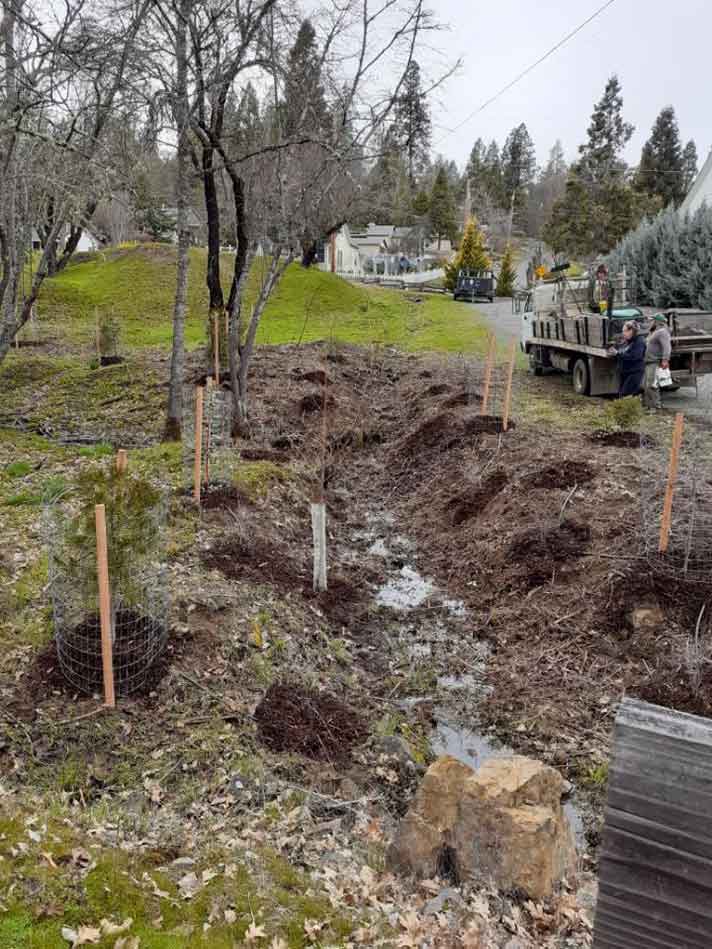Submitted for Jacksonville Review May 2023 issue – published online-only
Most visitors to Jacksonville wouldn’t realize the existence or significance of the historical plaque and sign that is tucked away off Applegate Street in one of Jacksonville’s historic neighborhoods. This small, bronze plaque is set in a short concrete platform and reads:
RICH GULCH
GOLD FOUND HERE
DEC. 1851 BY
JAMES GLUGGAGE
JOHN R. POOLE
Fortunately, historians have recorded what happened at Rich Gulch:
In January of 1852, two mule packers, John R. Poole and James Cluggage, were hauling supplies from the Willamette Valley in the Oregon territory to Sacramento, California. They decided to set up camp for the night along a foothill. Needing water for their animals, they found a promising spot and started digging a hole. While digging they noticed a gold color in the hole. Sorting out the debris they realized they had just struck gold. John R. Poole and James Cluggage had accidentally stumbled onto the largest gold strike in Oregon’s history.
They immediately filed claim on the land located on Daisy Creek and named it “Rich Gulch.” James Cluggage filed a donation land claim on 160 acres and John R. Poole filed claim on 306 acres. With a section of their land the partners then went about setting up a town site, naming it Table Rock City. Poole and Cluggage became wealthy leaders in their community. Table Rock City later changed its name to Jacksonville. Soon Jacksonville became the largest town north of San Francisco, California.
(Excerpted from “The Centennial History of Oregon, 1811-1912” by Joseph Gaston)
When I was on a trolley tour of Jacksonville, I learned this interesting history about my town, but was alarmed by the state of this significant site. The portion of Daisy Creek where gold was found was completely overgrown with blackberry bushes and noticeable trash. It seemed to me that no one could appreciate its significance to Jacksonville’s history in the state it was in.
So, I cleaned it up. With the approval of the Elias family who owns the property, and adjoining neighbors, the Graceys, who agreed to irrigate the plantings and the City of Jacksonville, I hired Plant Oregon to restore the creek. Plant Oregon is a native nursery that provides a wide array of landscaping services, including creek restoration projects.
On a cold and rainy day in late March, Jacksonville finally saw the return of this important site. And now, Jacksonville can be proud to show off its beginnings.
Sindy Harris lives in Jacksonville. Restoration work was funded by Sindy’s Pigeon Service, (sindyspigeonservice.com) a sanctuary for rescued, domesticated pigeons in Jacksonville and also an online store that sells food and supplies to pigeons and their people.

Thank you, Sindy, for improving a significant Jacksonville landmark. It looks great.